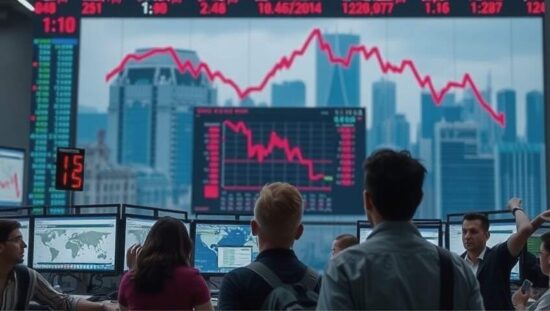European Markets Experience Volatility Amid Escalating Middle Eastern Tensions
The Dax index, a key indicator of the German stock market, continued its downward trend on Thursday, with a midday reading of approximately 23,235 points, a 0.4 percent decline from the previous day’s close. The index’s performance was influenced by the ongoing military escalation in the Middle East, with defense stocks such as MTU, Rheinmetall and Daimler Truck showing gains. On the other hand, e-commerce and technology companies like Zalando, Adidas and SAP experienced losses.
Market analyst Andreas Lipkow noted that investor anxiety remains high, with a focus on the escalating situation between Iran and Israel, which has gained further momentum with the potential United States’ involvement. “The situation remains tense and the market participants are closely watching the developments in the Middle East” he said.
Despite the ongoing geopolitical tensions, the European financial markets received a boost from the decisions of three major central banks, which announced expected interest rate cuts by the Swiss National Bank and the Norwegian Central Bank. The resulting increase in liquidity has kept the European financial markets running, according to Lipkow.
Investors, however, are exercising caution and selecting their investments carefully, with a preference for safe-haven assets, as Lipkow observed. The euro, the common currency of the European Union, was slightly weaker against the US dollar on Thursday, with one euro equivalent to 1.1477 US dollars and one US dollar to 0.8713 euros.





